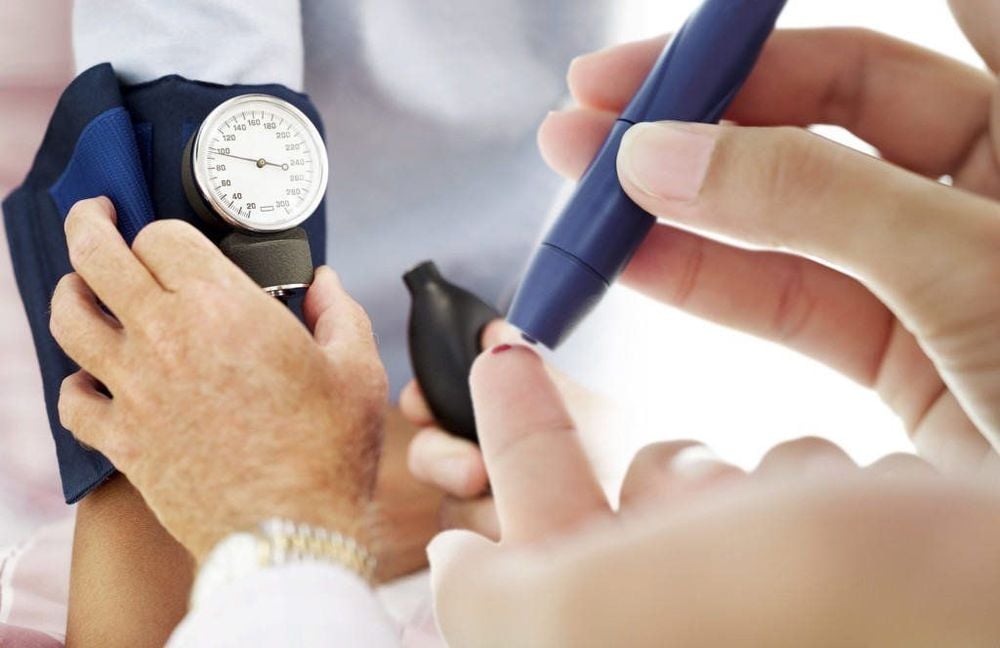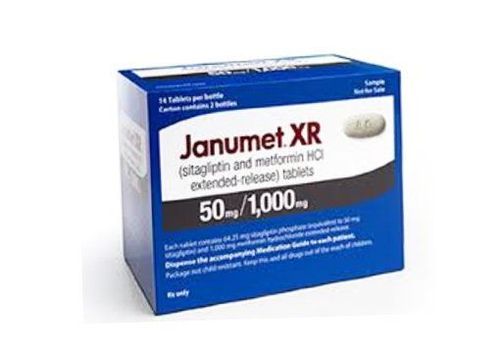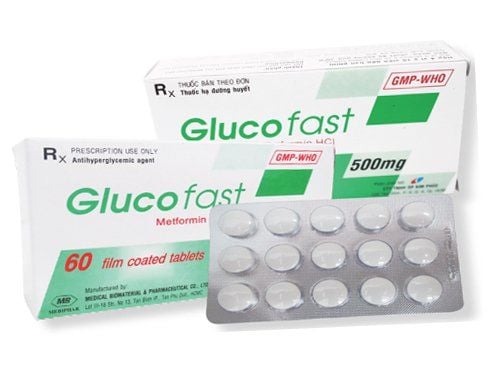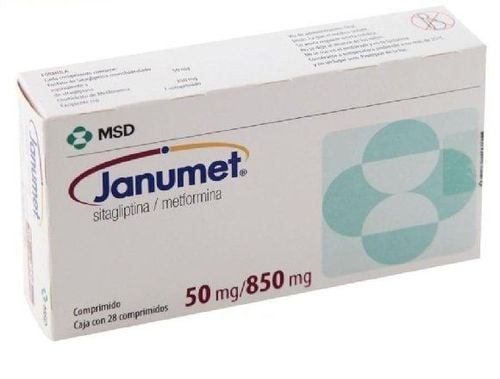This is an automatically translated article.
Currently, metformin is being commonly used in the treatment of diabetes. The drug is very safe even in people without hyperglycemia because it does not stimulate insulin release in pancreatic beta cells and does not cause hypoglycemia. However, there are still some caveats when using metformin.
1. The effect of the drug metformin
Metformin is effective in the treatment of diabetes, helping to lower blood sugar and not cause complications if not taken on an empty stomach or taking drugs with the same effect. For patients with type 2 diabetes, the drug reduces fasting and postprandial blood glucose concentrations and increases cellular glucose utilization and decreases intestinal and sternal glucose absorption.
Treatment of non-insulin dependent diabetes (type II): Monotherapy when hyperglycemia cannot be treated with diet alone. Metformin can be used in conjunction with a sulfonylurea drug, while maintaining a strict diet. However, metformin or a sulfonylurea alone is not effective in adequate glycemic control.
The drug is contraindicated for use in the following subjects:
For people with acute catabolism, infection, trauma. People with impaired renal function, renal dysfunction, heart failure, acute myocardial infarction, sepsis. Pregnant and lactating women Alcoholics and malnutrition In case the patient has ketoacidosis or pre-coma, renal failure or renal dysfunction, liver failure, cardiovascular disease severe, severe respiratory disease, severe infections, sepsis, gangrene and alcoholics Concomitant use of alcohol-containing beverages, including medicinal alcohol (risk of lactic acidosis).

Metformin có hiệu quả trong việc điều trị bệnh tiểu đường
Some drugs: Morphine, amiloride, digoxin, procainamide, quinine, quinidine, triamterene, ranitidine, trimethropim, vancomycin have the effect of increasing the toxicity of metformin. These are drugs that are eliminated by the kidneys.
Physicians will not use metformin with cimetidine because cimetidine increases peak blood and plasma concentrations of metformin. When metformin is used with other hypoglycemic agents such as insulin or a sulfonylurea, symptoms of hypoglycemia may occur.
2. Side effects of drugs
Like any western medicine, patients using metformin may experience some unwanted side effects. In mild cases, the patient may lose appetite, nausea, diarrhea, constipation, heartburn; rash, urticaria, sensitivity to light; decreased vitamin B12 levels. If more severe can cause disorders of blood production, aplastic anemia, hemolytic anemia, marrow failure, thrombocytopenia, agranulocytosis; lactic acidosis.
Regardless of any of the above symptoms and signs, you also need to consult your doctor / pharmacist to give the best treatment.

Sử dụng metformin có thể gặp một số phản ứng phụ như tiêu chảy
3. Note when using
To use in the most effective way to treat diabetes, you also need to consult your doctor / pharmacist about the notes when using the drug. Always be sure to read the instructions for use carefully before using. Here are some cautions when using metformin are:
For diabetics, diet is the biggest determinant, medications are just adjuncts, supplements and metformin as well. so. A scientific diet, moderate exercise will be very effective. For the elderly, weak health, and reduced kidney function, the use of the drug is not recommended, because metformin is excreted by the kidneys. This will cause accumulation and high levels of lactic acid, causing impaired kidney function. The elderly should not be treated with the maximum dose of metformin. Before treatment, serum creatinine should be checked. When you plan to have an X-ray, you need to actively stop taking the drug within 2-3 days. It is only when the assessment of renal function shows normal results that the drug is returned to normal. Do not use metformin with drugs that affect tubular secretion because it affects the distribution of metformin. Before each surgery, the drug should be discontinued. Patients with impaired liver function are also contraindicated to use the drug Pregnant women and children should not use metformin. The risk of reduced absorption of vitamin B12 may occur when patients use the drug for a long time, causing anorexia, bloating, nausea, heartburn, diarrhea, constipation. However, in this case, you can inject vitamin B12 to replenish the vitamin deficiency. Do not use alcohol, beer or sulfonylurea, while taking medication, because it can cause hypoglycemia. Patients should take metformin with meals to avoid gastrointestinal side effects. When taking the medicine, do not chew the tablet.

Đối với bệnh nhân tiểu đường, chế độ dinh dưỡng là yếu tố quyết định lớn nhất
Vinmec International General Hospital with a system of modern facilities, medical equipment and a team of experts and doctors with many years of experience in medical examination and treatment, patients can rest assured to visit examination and treatment at the Hospital.
Please dial HOTLINE for more information or register for an appointment HERE. Download MyVinmec app to make appointments faster and to manage your bookings easily.













